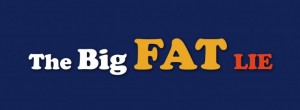 BY EMMET RUSHE: Last week, a major story broke in every major news outlet across the globe.
BY EMMET RUSHE: Last week, a major story broke in every major news outlet across the globe.
It turns out that the advice we have been given for years regarding the harmful effects of fat in our diet, were completely wrong.
National dietary advice on fat consumption issued to millions of US and UK citizens in 1977 and 1983, to cut the incidence of coronary heart disease, lacked any solid trial evidence to back it up. It “should not have been introduced,” concludes research published in the online journal Open Heart.
The article published in the BMJ’s Open Heart journal argues that dietary guidelines adopted by British authorities in the early 1980’s and still in use today are based on “very limited evidence”.
The new research claims to show that women were excluded from trials to determine the relationship between fat and coronary heart disease and that the risks of saturated fats were not conclusively proven.
The paper also exposes how the original research only focused on unhealthy men and that its findings did not explicitly call for new dietary guidelines to be imposed.
Think about that for a minute. The study did not call for new dietary guidelines to be introduced, and yet they were?
“It seems incomprehensible that dietary advice was introduced for 220 million Americans and 56 million UK citizens, given the contrary results from a small number of unhealthy men,” write the researchers.
They go on to say: “The results of the present meta-analysis support the hypothesis that the available [randomised controlled trials] did not support the introduction of dietary fat recommendations in order to reduce [coronary heart disease] risk or related mortality.”
And they conclude: “Dietary advice not merely needs review; it should not have been introduced.”
But in a linked editorial, Rahul Bahl of the Royal Berkshire NHS Foundation Trust, offers a note of caution.
The most up to date review of the evidence also concluded that the evidence on which current dietary guidance is based was “very limited,” but this doesn’t mean that the risk factor identified is not a true risk factor.
“There is epidemiological and ecological evidence suggesting a link between dietary fat and heart disease, added to which public policies generally don’t require randomised controlled trial evidence,” he adds.
“There is certainly a strong argument that an overreliance in public health on saturated fat as the main dietary villain for cardiovascular diseases distracted from the risks posed by other nutrients, such as carbohydrates,” he writes.
“Yet replacing one caricature with another does not feel like a solution.”
So what does this mean for us?
What it means is that you should not fear foods like red meat, butter, cheese and cream.
With any food, moderation is key.
In contrast to saturated fats, trans fats, which are industrially produced and lurk under names like “partially hydrogenated vegetable oil,” will wreak havoc on your body.
So what types of fat can we eat and are actually good for our health?
(It is important to remember that this will work best if your diet is made up of whole foods rather than processed foods.)
Foods like; Oily fish or omega 3 supplements (2-4 times per week), extra virgin olive oil, flax seeds, nuts (not peanuts), nut butters (almond, cashew), seeds, avocados, coconut oil, steak, minced steak, milk, cheese, Greek yoghurt, cottage cheese.
These are a few choice sources of fat that you can include in your diet that, taken in moderation, can help improve a number of health issues in the body and may also help lose some stored body fat.
#TrainSmart
To keep up to date with fitness and nutrition tips, be sure to follow me through the link below. #TrainSmart
https://www.facebook.com/pages/Rushe-Fitness/120518884715118
Tags:






